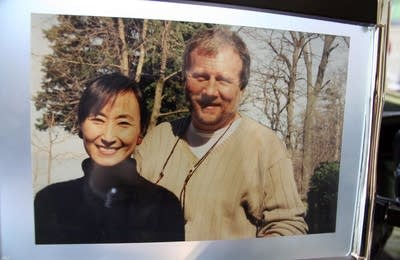Rwandan prosecutor says Erlinder retracted statements on genocide
Go Deeper.
Create an account or log in to save stories.
Like this?
Thanks for liking this story! We have added it to a list of your favorite stories.

The Rwandan government's controversial detention of a Minnesota law professor took a series of unexpected turns Wednesday, with Rwandan officials announcing that the professor retracted his statements on the country's genocide and tried to commit suicide in jail.
Peter Erlinder, a professor at William Mitchell College of Law in St. Paul, has been detained in Rwanda's capitol city of Kigali since Friday on allegations that he has expressed illegal views on the country's 1994 genocide. He traveled to Rwanda earlier last week to represent a presidential candidate who was also accused of promoting "genocide ideology."
In an interview with Reuters, Rwanda's chief prosecutor said Erlinder has retracted all statements that might violate the country's anti-genocide laws.
"He said during questions that 'I am retracting my comments, my provocations and anything that you think violates your law,'" chief prosecutor Martin Ngoga told Reuters. The news agency said another "legal source" confirmed the retraction.
Turn Up Your Support
MPR News helps you turn down the noise and build shared understanding. Turn up your support for this public resource and keep trusted journalism accessible to all.
Ngoga declined to say whether the government would drop the case.
"It is premature to make a conclusion whether that was said with a sense of remorse in it or just a statement made for the sake of it," Ngoga told Reuters.
Erlinder's family members said they doubt Erlinder retracted his statements, given his outspoken disagreement with the Rwandan government's officials explanation of the 1994 genocide.
Genocide is a sensitive subject in Rwanda after the 1994 killing of an estimated 800,000 people, mostly Tutsis and moderate Hutus. Current Rwandan President Paul Kagame is credited with ending the massacres when he led mostly Tutsi rebels to defeat the Hutus.
In April, Erlinder helped file a lawsuit in the United States accusing Kagame of ordering a plane that was carrying the presidents of Rwanda and Burundi to be shot down in 1994. The deaths are widely credited with sparking the mass killings.
Earlier in the day Wednesday, a Rwandan police spokesman told The New York Times that Erlinder was taken to the hospital after attempting suicide by swallowing a handful of prescription pills.
Erlinder's daughter dismissed the allegations of a suicide attempt, but said she's spoken with attorneys who confirmed that her father is back in a Rwandan hospital.
"I don't believe it at all," Sarah Erlinder said, in an interview from Washington, D.C., where she and other family members hope to meet with State Department officials to discuss Erlinder's situation.
Sarah Erlinder said her father's lawyers and a representative from the U.S. Embassy have been able to visit him and report that he's stable. But she said her family and other supporters are concerned Rwandan authorities might harm him.
"I think that it means that his situation has gotten absolutely dire. I think that they have to either consider it an attempt on his life or laying the groundwork to kill him and claim that it was suicide," she said.
BBC analyst and East Africa specialist Kasim Kayira said that verifying the government's claims is difficult.
"When he was taken to hospital, none of [Erlinder's attorneys] went with him to confirm that, so all we are having now is police reports," Kayira said on MPR News' All Things Considered on Wednesday. "And it is the police which arrested him [who have to] build up a dossier [to be] submitted before a court of law."
Kayira said that Rwandan's reaction to Erlinder's arrest has been mixed. The same day police arrested Erlinder, a group of genocide survivors held a large demonstration calling for his arrest or deportation, Kayira said.
(MPR's Tom Crann contributed to this report.)




